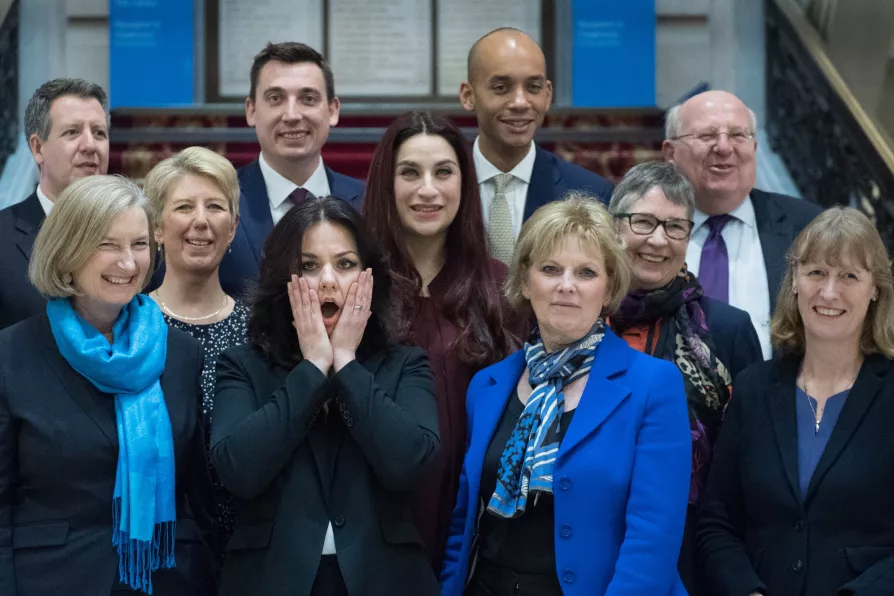As the RMT Health and Safety Conference takes place, the union is calling for urgent action on crisis of work-related stress, understaffing and the growing threat of workplace assaults. RMT leader EDDIE DEMPSEY explains

 The Independent Group: (back row left to right) Chris Leslie, Gavin Shuker, Chuka Umunna and Mike Gapes, (middle row, left to right) Angela Smith, Luciana Berger and Ann Coffey, (front row, left to right) Sarah Wollaston, Heidi Allen, Anna Soubry and Joan Ryan
The Independent Group: (back row left to right) Chris Leslie, Gavin Shuker, Chuka Umunna and Mike Gapes, (middle row, left to right) Angela Smith, Luciana Berger and Ann Coffey, (front row, left to right) Sarah Wollaston, Heidi Allen, Anna Soubry and Joan Ryan
THE Independent Group for Change, the failed “centrist” party founded by Chuka Umunna et al, hired Boris Johnson’s former campaign team to help them choose candidates for the 2019 European election campaign.
This was the Independent Group for Change’s first electoral test: the new party failed that test, getting just 3.3 per cent of the vote.
Hiring Johnson’s staff and spending £886,681 on the campaign could not sell the new party to voters.

Plaid Cymru’s spokesman on health and social services MABON AP GWYNFOR, in the second article of a two-part series, argues that Labour’s contempt for voters and backward-facing approach have led to widespread mistrust in Wales

It is rather strange that Labour continues to give prestigious roles to inappropriate, controversy-mired businessmen who are also major Tory donors. What could Labour possibly be hoping to get out of it, asks SOLOMON HUGHES

In the run-up to the Communist Party congress in November ROB GRIFFITHS outlines a few ideas regarding its participation in the elections of May 2026

SOLOMON HUGHES details how the firm has quickly moved on to buttering-up Labour MPs after the fall of the Tories so it can continue to ‘win both ways’ collecting public and private cash by undermining the NHS











